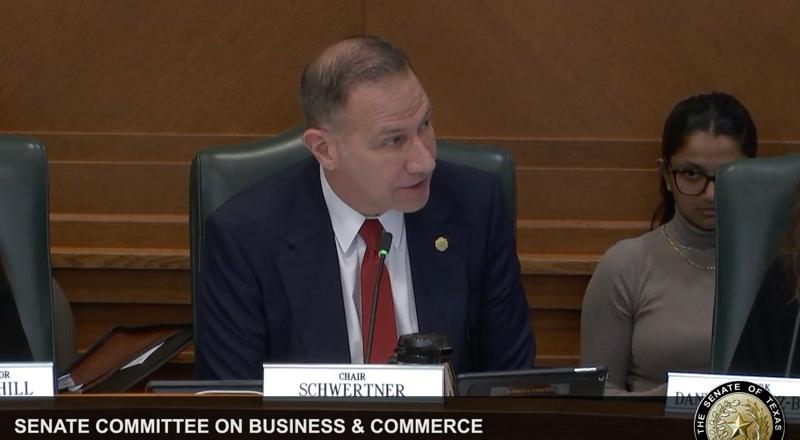Texas may soon allow state money to be invested in cryptocurrency.
State Sen. Charles Schwertner, R-Georgetown, filed SB 21, the Texas Strategic Bitcoin Reserve and Investment Act, which would create a new reserve to invest in digital currency.
The bill states that “bitcoin and other cryptocurrencies are assets with strategic potential for enhancing this state ’s financial resilience” and “can serve as a hedge against inflation and economic volatility.” Establishing a strategic bitcoin reserve will benefit Texas residents by “providing enhanced financial security,” it says.
The reserve would operate as a special fund outside the state treasury and be managed by the state comptroller’s office. It would receive funds transferred or deposited by a legislative appropriation; by dedicated revenue from the legislature; by bitcoin and other cryptocurrency purchased using money in or received by the reserve; by a fork of a distributed ledger; by a distribution from an airdrop to the state ’s cryptocurrency addresses; by investment earnings and interest or rewards earned on assets in the reserve; and by gifts, grants, and other donations to the reserve.
At a Senate Business & Commerce Committee hearing this week, Schwertner said the bill sends “a clear message regarding the decades long spendthrift stewardship of our country by the federal government.”
Individuals and investment firms have responded to the federal government’s uncontrollable spending “by seeking alternatives to fiat currency. These alternatives have historically included gold and land but now include many cryptocurrencies,” he said.
The U.S. Treasury Department refers to Bitcoin “as digital gold” and it’s become a recognized asset in the financial markets, he said. Individuals directly hold Bitcoin assets or invest in them through publicly listed Securities and Exchange Commission-regulated Bitcoin ETF’s traded on U.S. stock exchanges.
“Bitcoin offers unique advantages in the digital era due to its limited supply and decentralized nature in contrast to the federal government, which has a unlimited printing press and centralized control of the currency,” Schwertner said. The bill will allow Texas “to diversify our investment approach, participate competitively in the digital financial economy and leverage the benefits of Bitcoin and other cryptocurrencies.”
The bill would authorize the state comptroller’s office to acquire, exchange, sell, manage and retain investments of Bitcoin and other cryptocurrencies with a market capitalization of at least $500 billion. It also would allow for public participation through donations. All reserve assets “will be managed under the same prudent investor standard currently followed today ensuring responsible financial stewardship,” he said.
Before the comptroller transfers funds to the reserve, legislative approval is required, according to the bill language.
The bill also would allow the comptroller’s office to contract with qualified providers to assist with managing and administering the reserve. It would create a strategic Bitcoin Reserve Advisory Committee to provide cryptocurrency investment expertise and recommendations to the comptroller’s office.
Creating a Texas Bitcoin Reserve was listed as a top legislative priority of Lt. Gov. Dan Patrick, The Center Square reported.
Texas is among at least 31 states whose legislatures are considering implementing new laws and regulations to allow state money to be invested in cryptocurrency.
State legislatures are pursuing their own cryptocurrency policies this year after 18 state attorneys general argued the SEC “has not respected” state authority and “without Congressional authorization … sought to unilaterally wrest regulatory authority away from the states through an ongoing series of enforcement actions targeting the digital asset industry.”
In December, Texas was among 18 states that sued the SEC for launching “a regulatory assault against crypto companies,” The Center Square reported.







